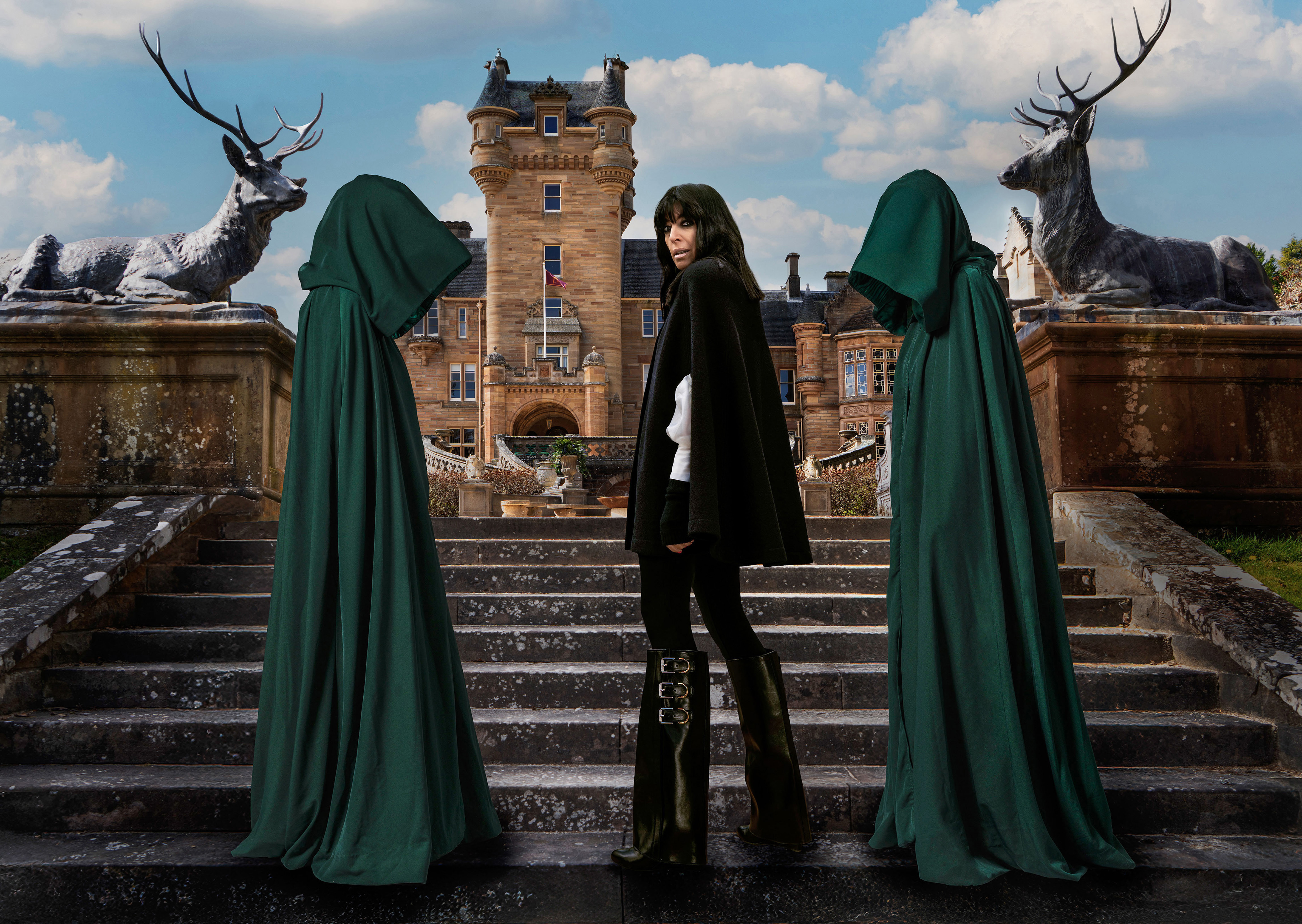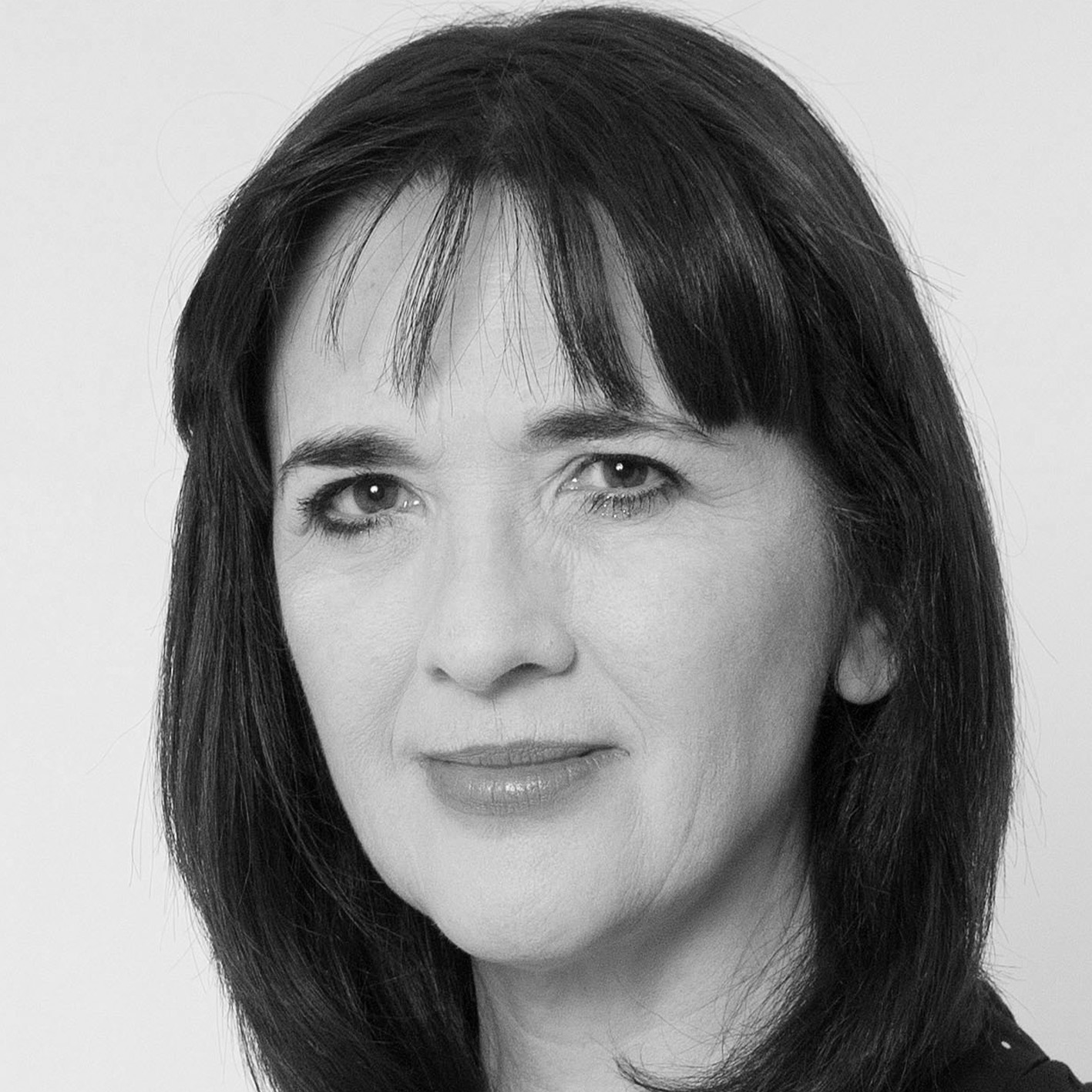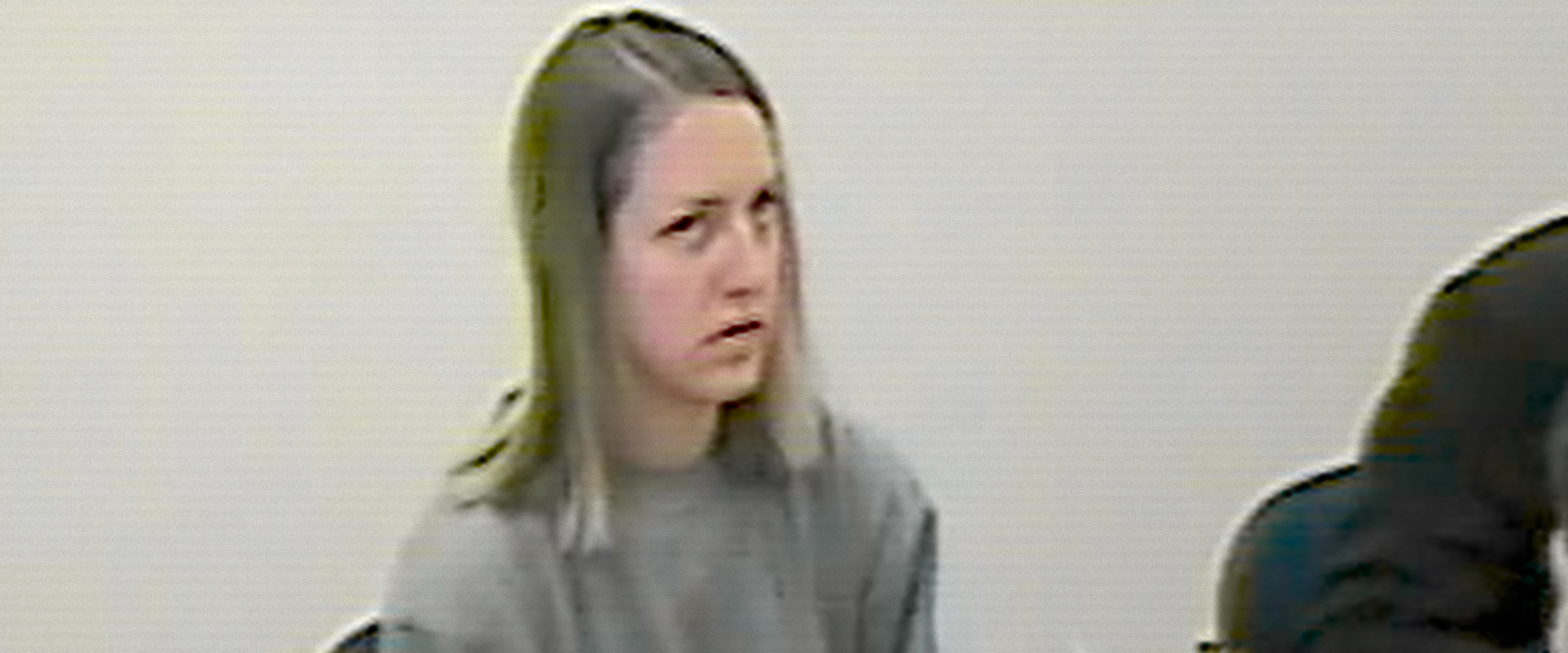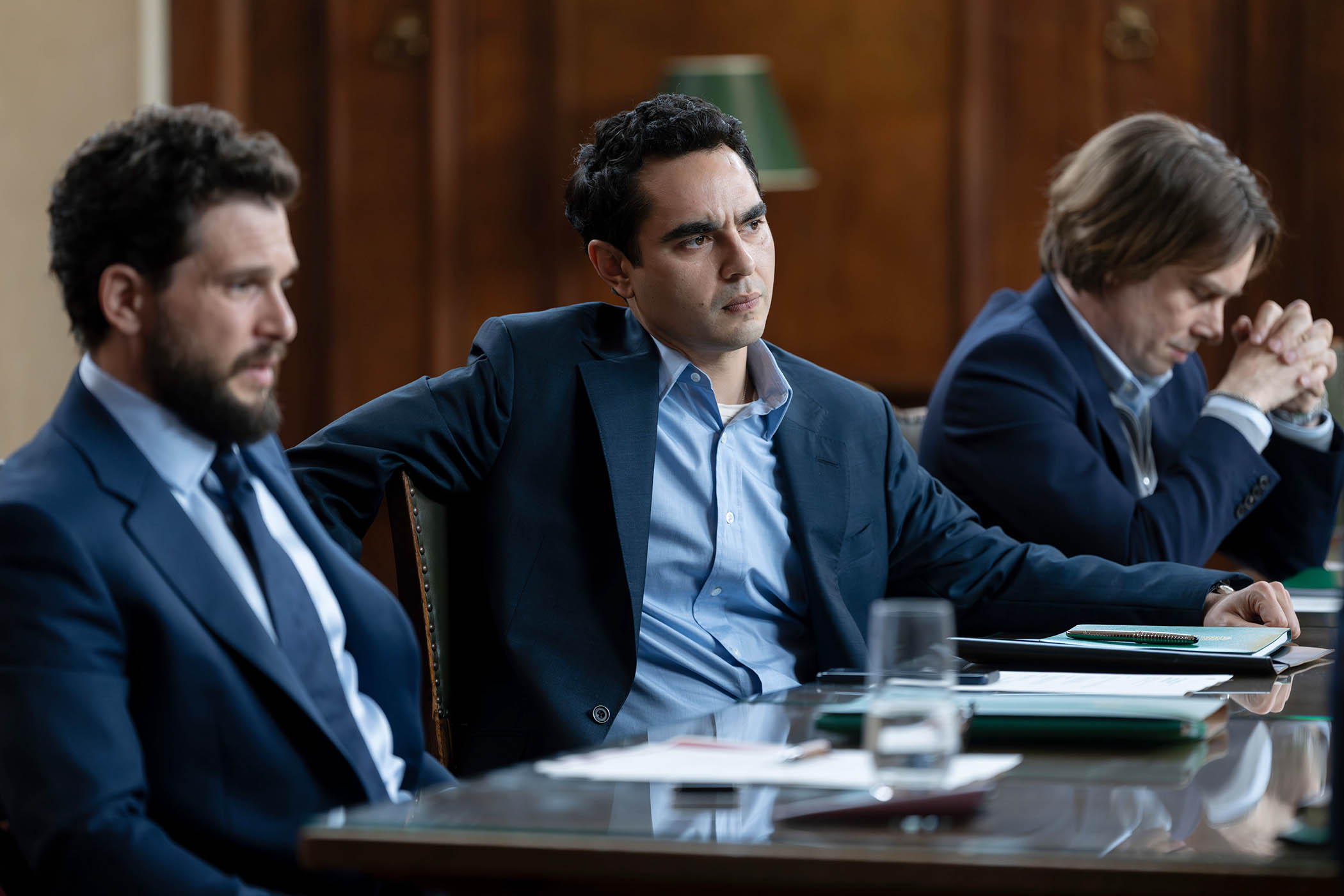Who’d have thought you could have so much fun with a dusty turret and a green velvet cloak? A vast television audience is anticipated for next week’s final of The Celebrity Traitors (factoring in catch-up figures, 14.3m tuned in for the launch – that’s around one in four adults in the UK). An unprecedented audience, despite the fact that, in terms of catching Traitors, this is the all-time worst group of Faithfuls in the history of the BBC show.
On Wednesday night – spoilers incoming – one of the three Traitors, Jonathan Ross, was finally caught and banished, seven episodes into the nine-episode run. Of the original 19 celebrities, five remain. The surviving Faithful are actor Nick Mohammed, former England rugby player Joe Marler, and historian David Olusoga. The remaining Traitors are singer Cat Burns and comedian and presenter Alan Carr.
The Celebrity Traitors follows the Bafta-winning blueprint of The Traitors, which started in 2022, described by presenter Claudia Winkleman as “the ultimate psychological game of deception”. The formula is the same. Three Traitors, secretly selected by Winkleman, scheme to “murder” the Faithful; the Faithful try to identify and banish the Traitors at the roundtable. If one or more Traitors remains at the end of next week’s final, they take all the prize money – a potential £100,000 amassed from missions – for their chosen charity. (Each celebrity was also paid a flat £40,000 fee to appear, but the real motivation seems to be the knowledge that this would be a televisual event, and for the celebrity superfans, the desire to play the game.)
The show marks the return of the ultimate broadcasting unicorn: “appointment telly”, with audiences obediently sitting down to watch episodes on the night. So how did The Celebrity Traitors become British television’s most unmissable series?
The cloak-swishing theatre of the show has passed into TV folklore. The dream-team casting of Stephen Fry, Charlotte Church, Joe Wilkinson, Clare Balding (Sarah Ferguson reportedly declined; that whizzing sound you hear is the BBC dodging a bullet). There was Carr’s initial horror at being cast as a Traitor: “I have a sweating problem and I can’t keep a secret”; Paloma Faith’s fury at being killed first, betrayed by Carr, a close friend; Celia Imrie’s fart: “I’m so sorry, it’s nerves – but I always own up”; Tom Daley giving Kate Garraway Olympic-grade side-eye. And more. Unscripted. Hilarious. Addictive. Excruciating in all the best ways. The Celebrity Traitors has been manna from autumn TV scheduling heaven.
Then there’s the Claudia Factor. The presenter recently resigned, along. with co-host Tess Daly, from Strictly Come Dancing. It’s reported that Winkleman is being given her own BBC chat show on the strength of her success with Traitors, which makes sense. Working an undead-St Trinian’s-style palette (fringe; tweed; big jumpers; repeat), Winkleman presides like a primetime Mrs Danvers over the Traitors castle, extending the frostiest of welcomes to contestants. Without the idiosyncrasy of Claudia Winkleman’s presenting, the British series wouldn’t be the same.
The Traitors, with its fabled olde worlde ambiance – the setting of Ardross Castle in the Highlands; Winkleman’s quasi-aristo hauteur; the Arthurian roundtable – feels as British as Sebastian Flyte’s teddy bear. But it is, in fact, based on the Dutch show, De Verraders, first broadcast in 2021, and itself deemed to be a twist on the party game Mafia, devised by Moscow University student Dimma Davidoff, and a favourite of Silicone Valley tech bros. De Verraders creator Marc Pos viewed the show as a “social experiment”, saying: “I wanted to watch people who don’t trust each other.”
A few years on, The Traitors has become an established global brand. There’s The Traitors US (host, Alan Cumming, rivalling Winkleman for stonewalling and avant-garde regalia), Traitors Australia, The Traitors New Zealand, The Traitors Canada, and myriad other international territories including India, Poland and the Czech Republic. The Traitors Ireland, hosted by Siobhán McSweeney (Derry Girls) aired earlier this year, and will be available elsewhere soon.
Related articles:
The Traitors has also generated a satellite industry of copycat shows of varying quality as broadcasters scrabble to sate public appetite for gameshow treachery. These include: The Fortune Hotel on ITV1 with Stephen Mangan (OK); The Inheritance on Channel 5 with Liz Hurley and Rob Rinder (a hyper-camp sugar rush); Million Dollar Secret on Netflix with Peter Serafinowicz (erm); ITV1’s The Genius Game with David Tennant (quietly cancelled after one series), to name but a few. As a broadcasting model, The Traitors is proving difficult to replicate, but it’s not for want of trying.
One thing that sets The Traitors apart is its strength as a “watercooler” conversation-starter. Is it a chilling Orwellian exercise in cloak-rustling group-think? A game of skill and people-watching? Could our post-Covid generation be responding to the isolation and paranoia of the show? Is its popularity in the UK primarily based on being the “cosy crime” home nation of Agatha Christie? Or is The Traitors a televisual microscope-slide of human nature at its worst, and suggestibility at its strongest? Talking at the Edinburgh TV festival, Stephen Lambert, whose production company Studio Lambert makes the UK and US versions of The Traitors, observed that watching the Faithful make firm decisions based on scant evidence has shaken his faith in the British jury system.
Newsletters
Choose the newsletters you want to receive
View more
For information about how The Observer protects your data, read our Privacy Policy
Another key facet of The Celebrity Traitors has been the protectiveness over the family-viewing format. The celebrity version was made under the same strict conditions as the “civilian” show, with contestants isolated in a nearby airport hotel and sworn to secrecy. Ross was reproached for discussing mundane details, such as the confiscation of contestant phones and devices. There were no politicians or otherwise controversial characters in the cast. While former speaker of the house John Bercow appeared on the second series of The Traitors US (which casts famous people), he would have been unlikely to get on to the British version, never mind Nigel Farage or Matt Hancock (formerly of I’m a Celebrity…). The Celebrity Traitors is reality television behaving itself.
Nonetheless, Traitors purists were wary of a celebrity version of the UK show. Would the unalloyed machiavellian quality of The Traitors be hampered by concerns over image preservation? There were reports of celebrity PRs worrying about how their clients were coming across. Would there be the same insights into the human condition – how people manage stress? how they tell lies? – or would there simply be insights into micromanaged celebrity?
The Traitors is democratic – the celebrity version, at least in earlier episodes, seemed to suffer from a clash between national treasures and newer faces. The first Faithful to be banished was content creator, Niko Omilana, who has eight million YouTube followers, but is less familiar to older viewers. Actor Ruth Codd has spoken of an unspoken hierarchy on the show, placing lesser-known people like her at a disadvantage. While Ross was the first Traitor to fall, it’s arguable that such a flamboyant character – dubbed a “big dog” by Marler and Wilkinson – would have been ousted quicker in the civilian show.
This is not to suggest that the celebrity influx ruined The Traitors, just that it may have changed it. Does it matter? No, it’s been far too much fun. It seems odd to say of a gameshow based on murder, but the main challenge facing The Traitors is overkill. A new fourth series of the regular Traitors is expected to air in January. People are already being asked to apply for the series after that. This is the Achilles heel of broadcasting: the pumping of a format until it explodes or perishes.
Otherwise, I have no argument with a TV show that made me convulse with laughter at the sight of Daley at Faith’s funeral, posing with his shirt unbuttoned practically to his navel, like a stylish serial killer. The series hasn’t been perfect: the padding; the still-dreary missions; the Faithfuls’ bizarre over-solicitous rota-system with the shields. But anyone with any sense will be grabbing their lanterns and making their way to the turret for the final. Whatever else The Celebrity Traitors phenomenon is or isn’t, it’s television to die for.
Photograph by BBC/Studio Lambert/CodyBurridge



